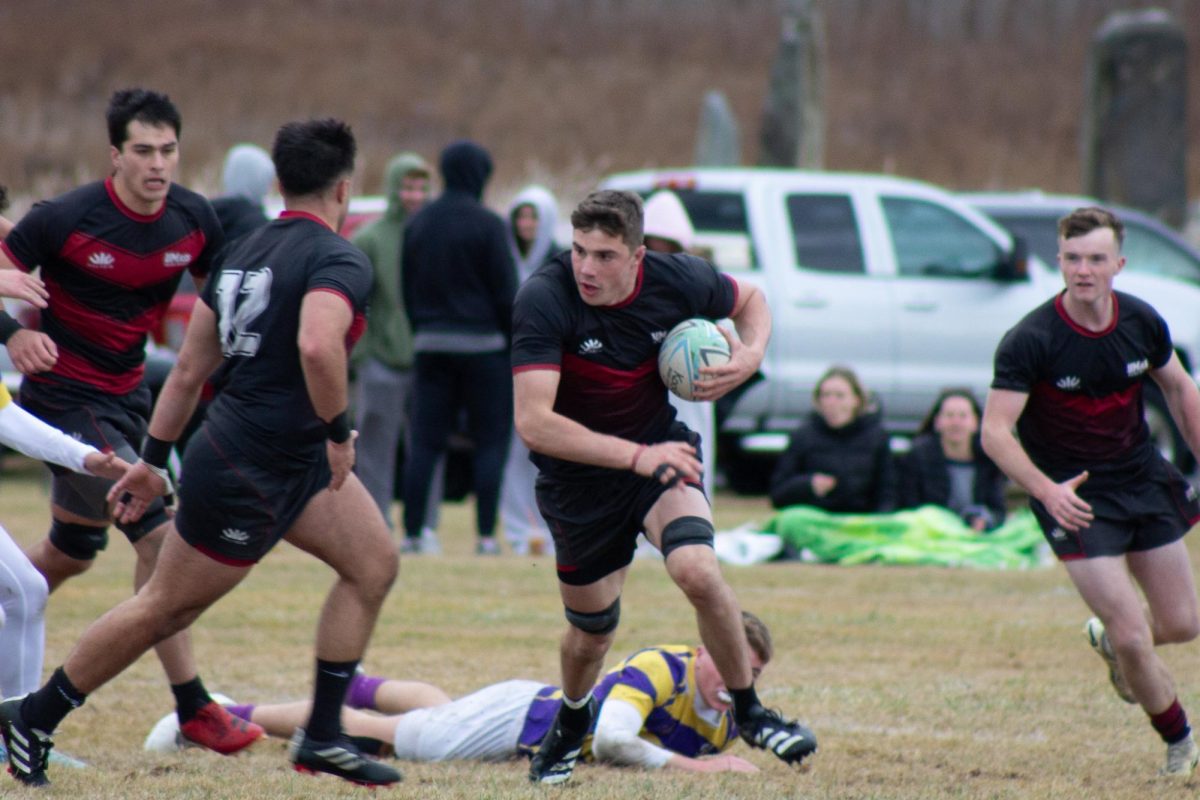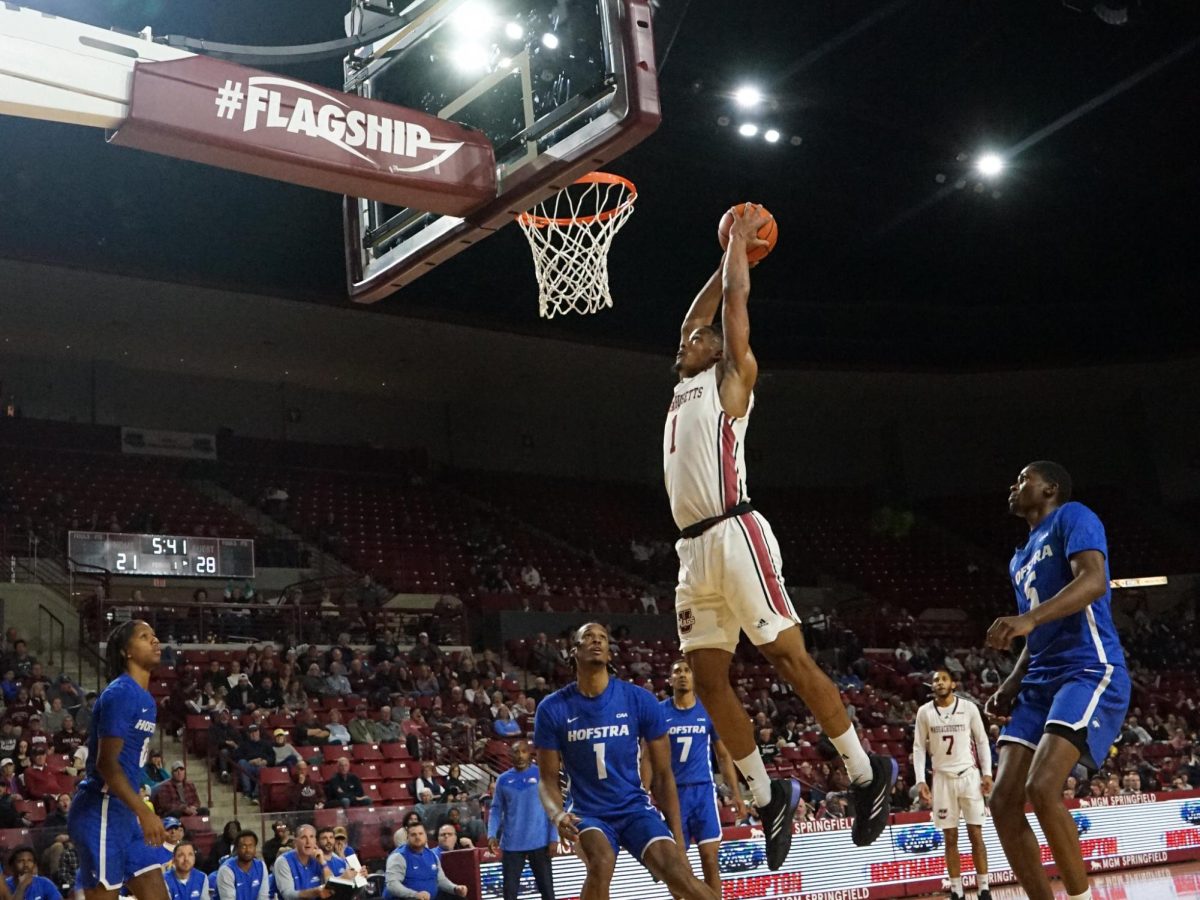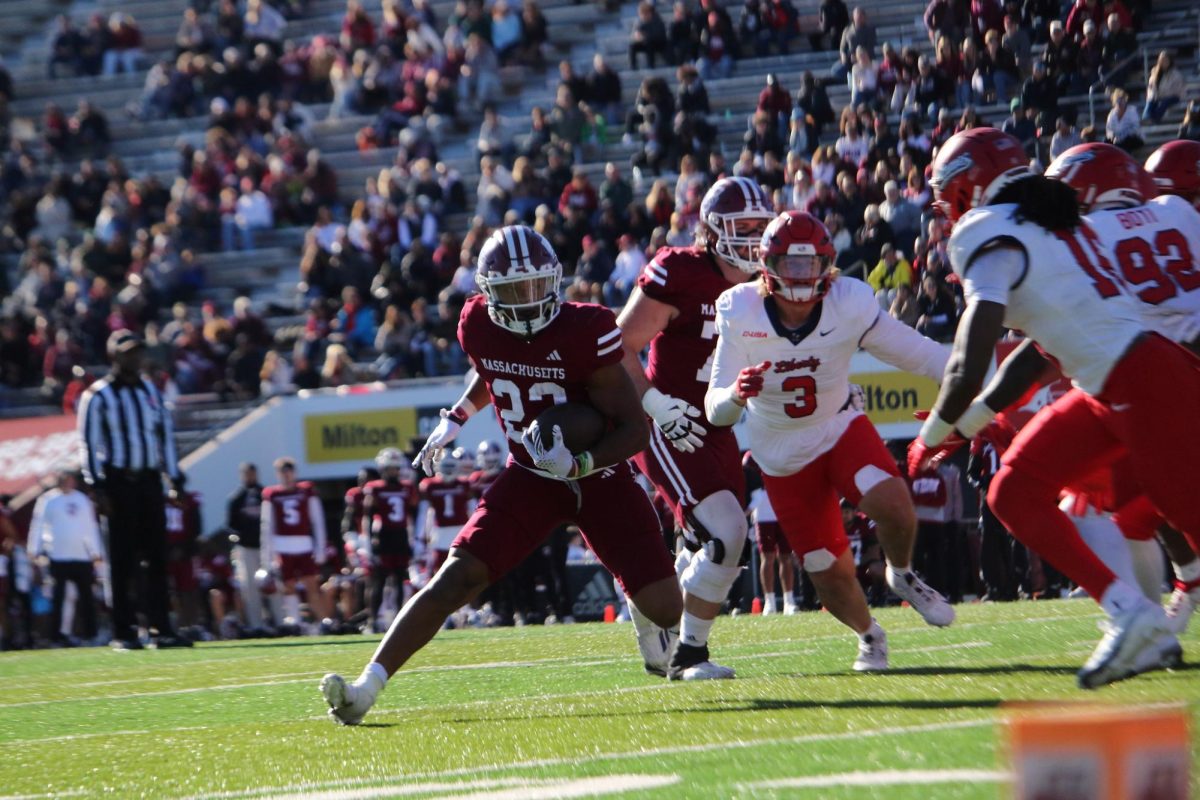
Speaking to a crowd of 40 in Herter Hall Wednesday, a Puerto Rican academic accompanied by a political activist addressed the causes of the island’s current economic crisis and explored possible solutions to mitigate the social impacts of strict austerity measures imposed upon the territory.
Puerto Rico, a U.S. territory acquired from Spain in 1898, has more than $72 billion in debt and has recently defaulted on payments to some of its creditors. The current unemployment rate is 12 percent, the poverty rate rests at 45 percent and natives are flocking to the United States in droves to escape an economy that’s been in decline for the past decade.
The presentation closed a series of lectures hosted by the Center for Latin American and Caribbean Studies at UMass which has examined the state of the struggling commonwealth throughout the semester. Both speakers addressed the negative effects of Puerto Rico’s history as a colonized state and how the rise of globalization and governmental corruption contributed to the current crisis.
The first speaker, Emilio Pantojas Garcia, a professor at the University of Puerto Rico, said the current crisis could be seen on the horizon once a law that granted the island an advantage on the international market was disbanded in 1996. The article provided federal tax breaks to international corporations that stored capital in Puerto Rican banks, which then collected taxes at reduced rates.
Garcia said once trade globalization rose in the 1990s, and especially following the admission of China into the World Trade Organization, the federal government granted the same terms to other nations – eliminating the favoritism for Puerto Rico that attracted much-needed revenue.
After his opening point, Garcia backtracked to explain the structure of Puerto Rico’s government in relationship to the U.S. Following World War II, the island was granted partial control over its domestic affairs and was allowed to form its own system of governance. Island residents are U.S. citizens, but can’t vote in federal elections unless they reside within the continental states. The island also has no voting power in Congress.
According to Garcia, the island is owned by but not a part of the U.S.
“Think of it this way – I own my goatee and these pairs of shoes. The goatee is a part of me, but the shoes are not. Puerto Rico is the shoes of the United States,” Garcia said.
Following WWII, Puerto Rico experienced economic growth driven by exports. Its citizens experienced a period of prosperity, and the economic model was championed by U.S. officials hoping to see similar transition to open markets across the globe.
The island remained dependent on the U.S., but relatively stable until the removal of the tax break article. The idea behind the article, according to Garcia, was that a U.S. company would establish a patent in America, at a tax break, then sell it to a subsidiary in Puerto Rico.
The parent company would collect royalties that are held within the island’s banks for five years. Puerto Rico received a two percent tax on the holdings, which accounted to $16 billion in profits from this arrangement by the 1990s.
After the law was phased out in 2006, Puerto Rico’s economic output plummeted while its debt consistently rose.
The increased competition on the global market led to a loss of exports and sent ripples through the economy. A foreclosure crisis occurred, a loss of $60 billion in wealth over 10 years and a mass migration to the United States seeking economic opportunity also followed.
However, Garcia said loss of favoritism wasn’t the only catalyst. He said gross negligence, nepotism and corruption by elected Puerto Rican officials has exacerbated the situation.
“FIFA looks like kindergarten compared to Puerto Rico when it comes to corruption,” he said.
The second speaker, Hugo Delgado Marti, a leader in the island’s socialist organizations, focused his speech on the greed-driven decisions of officials. He outlined a process similar to relationships most developing countries share with larger “metropolis” benefactors.
According to Marti, the years of dependence on the U.S. and dominance of corporations has stymied the island’s internal infrastructure and economic stability. Corporations take advantage of abundant natural resources and solidify unbalanced contracts. What keeps the cycle in place is the greasing of the bourgeois elite of Puerto Rico who have financial influence over legislators and reap great benefits while the working classes suffer.
Both speakers agreed that an explanation for the current crisis is not simplistic. The sapping of natural resources and a reliance on exports as the backbone of their economy has left their own social and manufacturing industries atrophied.
However, Garcia placed blame on corrupt legislators and the electorate who puts them into power, saying the island should take some responsibility. Marti agreed, but also countered that many of the powerful, while at fault for their reprehensible actions, were reacting to a relationship predicated by the U.S.’s colonial dominance.
Brendan Deady can be reached at [email protected] and followed on Twitter @bdeady26.



















Ron • Apr 21, 2016 at 9:47 am
Balanced article. Bailing Puerto Rico out without a federal control board, would be throwing money down a rat hole. They are not going to change unless forced to.